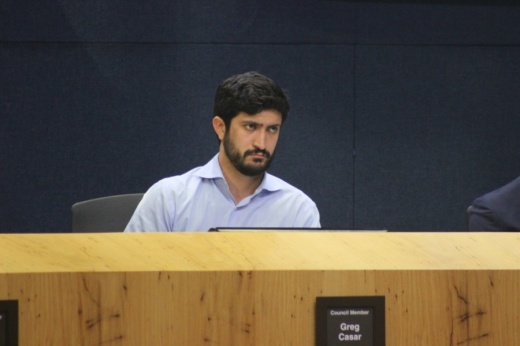In a City Council message board post just before 3 p.m. Dec. 16, Casar said he has received support from Council Members Pio Renteria, Ann Kitchen and Leslie Pool, as well as Council Member-elect Vanessa Fuentes. Mayor Steve Adler, in a message board response, said he would support Casar as mayor pro tem.
Pool confirmed her support to Community Impact Newspaper via text and Kitchen confirmed her support via a message board response. Fuentes and Renteria have not returned requests for confirmation. Since Casar can vote for himself, Fuentes and Renteria’s support would pave give him an at-least six-vote majority and pave the path for him to assume the role.
Casar, in his message board post, said, as mayor pro tem, he would stay committed to ensuring “every voice in our city” has a say in local government. He said he would take the role of mayor pro tem “very seriously as a citywide responsibility” and sees the position as a way to connect and work with all Austinites in pushing forward on the city’s most crucial issues in the coming years, such as homelessness and public safety.
“I believe that with my time on the dais and my work organizing in the community that I can help support every council member on the dais to achieve their goals in the district and to help further those citywide challenges that are so looming in the coming year,” Casar said. “With many of those goals, we have not found the path that gets us to where we want to be and I think that will require leadership and that’s a responsibility that I’m ready to take on if elected.”
By the rules of the charter, the City Council appoints the mayor pro tem by majority vote—this vote would happen during the council's January inauguration. If the mayor is absent or disabled, the mayor pro tem assumes all the power and responsibility of the mayor.
Austin currently governs under a city manager-council form of government, which essentially makes the mayor, in terms of voting power, a citywide-elected council member. There is a push underway to turn Austin into a strong mayor form of government, which could also change the responsibility of the mayor pro tem.
Adler, in a message board response to Casar, said he would be focusing his attention to homelessness and public safety in his final two years as mayor—he cannot run again in 2022 after serving two full terms. He said the work of City Council, and the future mayor pro tem, should be focused on building community coalitions around these issues.
“These two issues have such upside potential to improve the quality of life for everyone, but they have also left such division and polarization in the community,” Adler said. “We will only get to a good place if we move forward on these issues in a way that helps bring the community together. That work needs to be our focus.”
Kitchen echoed Adler’s sentiments, saying her support for Casar in the role is based on his commitment to unifying the city over polarizing issues.
“We must listen to everyone in our community to resolve our challenges with homelessness, public safety, and the land development code,” Kitchen said. “... Thank you for your willingness and commitment to bring your energy to this consensus building and collaborative approach.”
In another message board post, current Mayor Pro Tem Delia Garza, who is leaving her post at City Council at the start of 2021 to take over as Travis County Attorney, threw her support behind Casar as well.
“Looks like you will soon be [Mayor Pro Tem] Casar,” Garza wrote. “I look forward to seeing you in this important role and you have my complete confidence.”





